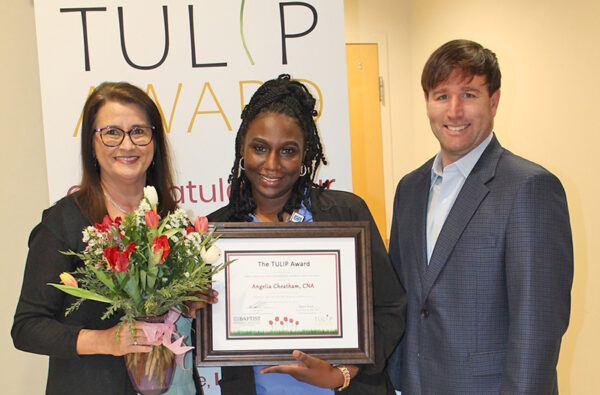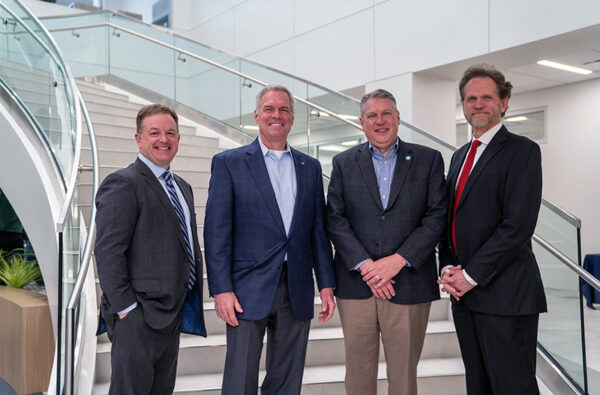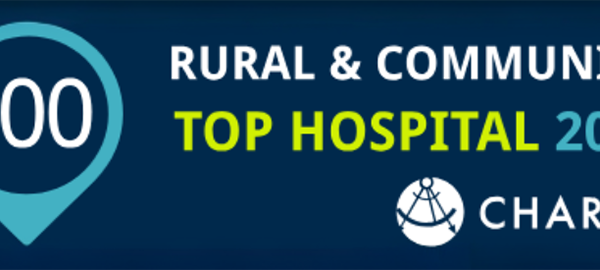Baptist Memorial Health Care completes a Community Health Needs Assessment (CHNA) every three years to help track community health, respond to needs of residents, increase access to care, and address underlying social determinants of health (SDOH) and health inequities. You can access Baptist’s 2022 CHNA reports for West Tennessee, Central and North Mississippi, Northeast Arkansas and the Memphis metropolitan area here: CHNA at Baptist Memorial Health Care. These assessments help guide Baptist’s community health improvement activities, as well as enhance care delivery, improve patient engagement strategies and direct population health management.
We discussed the importance of Baptist’s findings with two of the 2022 CHNA Steering Committee members: Keith Norman, DMin, vice president of government affairs and chief community relations officer; and Cynthia Bradford, system community involvement manager. You can find a complete list of the 2022 CHNA Steering Committee members at the end of this article.
What did we learn from the 2022 CHNA?
Dr. Keith Norman:
We really worked hard to get more voices included and to get a greater number of people to respond. We wanted to get the best information available to us, so we could know exactly where to place our emphasis and how to strengthen community relationships and make sure that we’re making the best investments for the people who need it the most.
We found an increased concern about maternal health among African American women, a rise in mental health issues and an increase in the impact of poverty on people having access to high-quality health care in the communities where they live.
While much of the known information remained consistent, we believe that COVID-19 and the economy and the state of mental health has impacted those who suffer the most from health disparities. We see a wider gap. COVID-19 was one of the triggers that made that gap wider, but systemically, it’s been there all the time.
How long does it take to complete a CHNA?
Cynthia Bradford:
We begin planning every two years because it takes us about a 15-month timeline to complete.
We pull data specific to the patient population for our regions with comparison to national averages for all patients, not just Baptist patients. Then, we move to the key informant survey. We meet with community and business leaders, elected officials, leaders of other health care organizations, local health departments, school districts and universities. Some of these surveys are conducted in person, but many were sent via email with a survey link coming from Jason Little, president and chief executive officer.
For our patient access survey, we reached out to providers across our regional network within Baptist and within the community, including physicians, nurse practitioners, midwives and community health centers. For this survey, we issued a joint request from Paul DePriest, MD, executive vice president and chief operating officer; Saju Joy, MD, senior vice president, chief medical officer and chief physician executive; and Mark Swanson, MD, vice president, Baptist Physician Enterprise and CEO, Baptist Medical Group.
The survey response was overwhelming. Our regional reports are complete, and the next step is the development of a Community Health Improvement Plan (CHIP) for each hospital in the Baptist system that will be available by Feb. 15. These valuable resources will contribute to our health equity strategy.
What are some recommendations that will be included in the CHIPs?
Cynthia Bradford:
One area of focus will be on better serving patients who face language barriers. We will create a Language Access Plan (LAP) and look at increasing patient access with bilingual case managers in areas where we have a high percentage of Latinx patients. We already utilize LanguageLine, an interpretation and translation service, but adding bilingual case managers will help enhance our ability to serve patients facing language barriers.
Within our electronic health record system (Baptist OneCare or Epic), we will activate a list of SDOH questions for all entities to assess socio-economic barriers that often adversely affect patient outcomes. These questions for patients will include topics like physical activity, financial resource strain, transportation needs and food insecurity.
When we relaunch Baptist OneCare, we can track analytics and make better use of our community resource site at BaptistResources.com which allows users to search for resources by ZIP code, including how to get assistance with food, housing, education, legal needs or transportation. We also want to highlight the new national 988 Suicide and Crisis Lifeline.
We want to have an increased focus on social and clinical determinants of health, and reducing health disparities, particularly among communities of color, by addressing systemic barriers that hinder equitable access to care.
Our CHIPs will include recommendations for Diversity, Equity and Inclusion (DEI) training for all levels of staff to increase genuine patient engagement and an understanding of the SDOH. We’re working toward enhancing cultural awareness and understanding with the DEI training and initiatives within our system. Unconscious bias in care can often adversely affect Black, Indigenous, People of Color (BIPOC), but DEI training can be valuable in this area.
Those are just some of the recommendations we’re considering for our CHIPs. Following The Joint Commission and the Centers for Medicare and Medicaid Services (CMS) recommendations will also help us focus on equity.
The Joint Commission’s Framework for Health Equity includes five priorities, which will help guide us:
- Expand the collection, reporting and analysis of standardized data
- Assess causes of disparities within CMS programs and address inequities in policies and operations to close gaps
- Build capacity of health care organizations and the workforce to reduce health and health care disparities
- Advance language access, health literacy and the provision of culturally tailored services
- Increase all forms of accessibility to health care services and coverage
Why is it important to understand SDOH?
Dr. Keith Norman:
When you understand the social determinants of health, and you begin to understand some of the obstacles that are there, you have an opportunity to remove those barriers. Some people look at the barrier and they try to raise a ladder to get over the barrier. We’ve taken a different approach. We look at the barrier and say, “How can we dismantle the barrier completely so that no matter how tall a person is or how short, if there is no wall, everybody can see the goal and everybody can see the opportunity.”
We want to go to the root cause. We don’t just try to find an item that a person needs. We want to figure out how to fix the problem beyond today, whether that’s education, connection to the resource or collaboration with someone who can supply the resource on a consistent basis, where that person is.
Why is this assessment vital, and why does Baptist put so much effort into it?
Dr. Keith Norman:
First, I would say because we care. I don’t think that part can be overlooked. Baptist has a long history of following the mandate of the threefold Ministry of Christ – Healing, Preaching and Teaching. Caring is the biggest driver, but we are also a leader in this space. We have some of the greatest contributors to health care here at Baptist Memorial Health Care.
There is a compliance mandate for all hospitals to do this assessment, but even without that mandate, we need this data to help make us better at what we do. We have always sought to find innovative ways to bridge the gap in health care.
Without the assessment, we may not realize that behavioral health is a part of what impacts our ability to deliver service, or that we need to focus on chronic disease management and maternal and child health. The assessment helps us figure out what we need to do to improve access, build capacity and promote equity. We’re dedicated to the well-being of our communities across the Mid-South.
2022 CHNA Steering Committee Members
- Donna Baugus, survey research manager
- Cynthia Bradford, system community involvement manager
- Abby Brann, system community involvement coordinator
- David Garrison, system finance director
- Tom Gladney, data management and decision support director
- Bill Griffin, executive vice president and chief financial officer
- Kelley Jerome, internal audits manager
- Briana Jegier, PhD, program chair and associate professor, Baptist Health Sciences University
- Taylor Jones, strategic planning data analyst
- Saju Joy, MD, senior vice president, chief medical officer and chief physician executive
- Jeff Lann, research and marketing development manager
- Michelle McDonald, PhD, dean of General Education and Health Studies, Baptist Health Sciences University
- Jim Messineo, Revenue and Operations audits director
- Keith Norman, DMin, vice president of government affairs and chief community relations officer
- Shivani Patel, health services research intern
- Anne Sullivan, MD, chief quality and academic officer
- Kimmie Vaulx, system corporate communications director
- Ann Marie Wallace, system senior community involvement coordinator
- Nicholas Weaver, system community involvement coordinator






